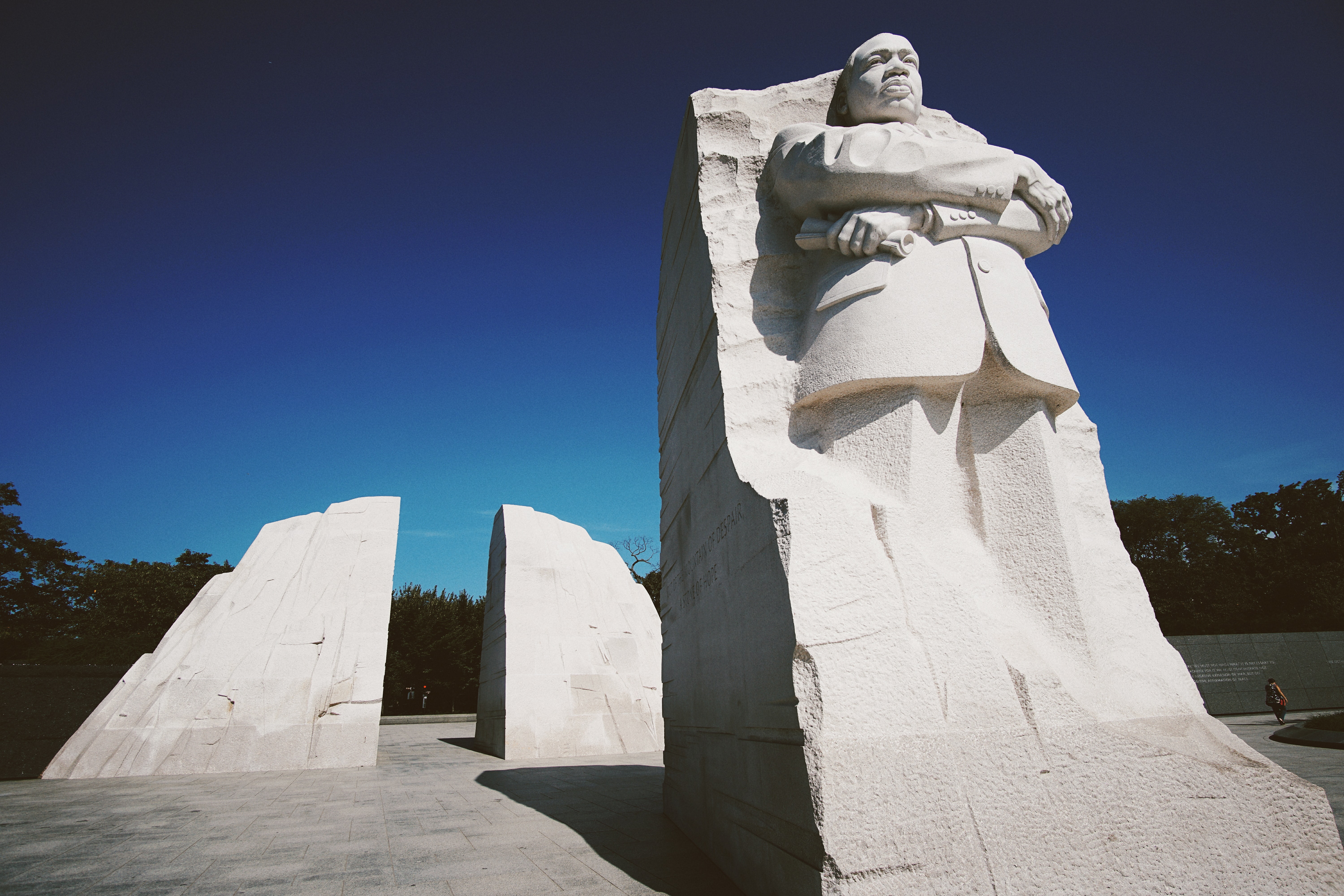
By: Isra Qadri and Qudsia Saeed | MPAC Policy Interns
Black History Month is a call to honor the many African Americans who have pushed, and continue to push, for an equal and just nation. Without their resiliency, progress would be lost. Dr. Martin Luther King Jr. unequivocally transformed American society through his lifelong commitment to social justice and equality. Dr. King cautioned us about the injustices that continue to plague our society in the 21st century — from voter disenfranchisement to police violence afflicting communities of color, particularly in Black communities. The abuses he sought to end have endured, yet the spirit of resistance and advancement that he embodied remains.
Throughout his life, Dr. King used religious principles as a catalyst for social justice and was inspired by his Christian upbringing. His values also reflect in Islamic ideals of combating injustices and celebrating diversity. Black Muslims comprise the largest population of native-born Muslims in the US. Muslims also use their faith as a guiding principle and with nearly 4 million Muslims of all backgrounds living in the US, it reminds us of the importance of understanding intersectional allyship within our own community.
In March of 1965, Dr. King worked with activists to organize a peaceful voting rights march in Selma, Alabama, which later became known as “Bloody Sunday,” due to the assault of civil rights protestors by white state troopers. What resulted from the bravery of the organizers and activists willing to engage in civil disobedience was the landmark Voting Rights Act of 1965, which prohibited a number of discriminatory voting practices, including literacy tests and voter intimidation. Though a historic step forward, that landmark legislation has not proved to be enough when it comes to eliminating voter suppression, especially in areas where Black voters are the majority.
The lasting legacy of voter suppression was in full view of the nation in recent election cycles. During the 2018 midterm elections, voters in Georgia from predominantly Black and minority communities were forced to wait in poll lines for hours due to a lack of sufficient voting machines and absentee ballots being discarded at significantly higher rates compared to surrounding areas. It was in those districts that races were won by fractions of percentages. In 2021, attempts to stifle the ability to vote were codified as Georgian lawmakers responded to record voter turnout in Black communities by criminalizing the act of providing water to those standing in poll lines and placing further restrictions on absentee voting.
Dr. King’s efforts to bring about change for his fellow Americans provide us with a much-needed blueprint to follow – one that emphasizes collective action and uniting Americans across demographics to achieve progress for all. His legacy is understood and echoed in his influential words, “Injustice anywhere is a threat to Justice everywhere.” That ability to go beyond the basic perception of racial justice by highlighting the roles of class and militarism in American society shows us the importance of intersectionality and identity in combating injustice.
The backsliding of American democracy endangers marginalized communities, who are on the frontlines of experiencing limitations to civil rights and liberties. Our vibrant and diverse communities have a responsibility to honor Dr. King’s legacy and stand together in the face of adversity by working to strengthen our democratic ideals.
MPAC’s African American Muslim Insight Council works with communities of color and is committed to reversing the attempts to further marginalize historically excluded communities and voices. The arc of the moral universe bends towards justice, and through faith, understanding the intersections that make up our identities and community action we will continue to honor Dr. King’s legacy.
Invest in MPAC’s work to improve public policies and perceptions. We’re changing how America views Islam and Muslims.